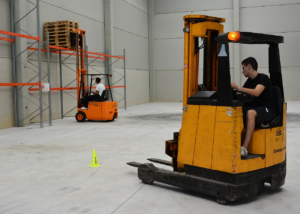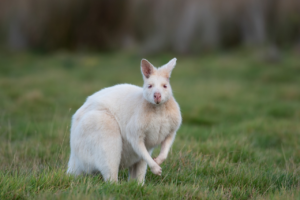Are you considering a career in nursing in Alaska? It’s important to know what kind of salary you can expect in this field. Nursing salaries in Alaska are generally higher than the national average, making it an attractive option for those looking to start or advance their nursing career.
In addition to competitive salaries, Alaska offers unique opportunities for nurses, including the chance to work in remote and rural areas, and to specialize in areas like wilderness nursing and Native health.
However, before you start packing your bags for the Last Frontier, it’s important to understand the experience and education requirements, potential career paths, and job outlook for nursing in Alaska.
Key Takeaways
- Nursing salaries in Alaska are generally higher than the national average, with RNs earning an average annual salary of $92,000.
- Obtaining a BSN and gaining experience can lead to higher earnings and better job opportunities for nurses in Alaska.
- The demand for qualified nurses with a BSN and experience is expected to continue growing in Alaska, particularly in remote healthcare facilities.
- Alaska offers unique opportunities for nurses, including the chance to work in remote and rural areas, and to specialize in areas like wilderness nursing and Native health.
Overview of Nursing Salaries in Alaska
You’ll be happy to hear that nursing salaries in Alaska are competitive and offer great earning potential.
As a nurse in Alaska, you can expect to earn an average salary of $90,000 per year. However, this number can vary depending on your level of experience, specialty, and location.
One way to increase your earning potential as a nurse in Alaska is through travel nursing. Many healthcare facilities in remote areas of Alaska offer higher salaries and benefits to attract nurses to their facilities. Additionally, remote healthcare facilities often have a higher demand for nurses, which can lead to more job opportunities and higher salaries.
Overall, nursing in Alaska can be a lucrative and rewarding career choice.
Unique Opportunities for Nurses in Alaska
Exploring the untapped wilderness of the Last Frontier has opened up a whole new world of possibilities for adventurous nurses to find unique opportunities in their career. Rural healthcare is an area of particular interest for nurses looking to work in Alaska. The state boasts a large rural population with unique healthcare needs, and nurses who are willing to work in these areas can make a significant impact on the health and well-being of these communities.
In addition to rural healthcare, cultural competency is also an important aspect of nursing in Alaska. The state has a rich cultural heritage, and nurses who are able to understand and appreciate this diversity can provide better care to their patients. By working in Alaska, nurses have the opportunity to develop their cultural competency skills and gain a deeper understanding of the diverse cultures that make up the Last Frontier.
Experience and Education Requirements
If you want to pursue a career in nursing in the Last Frontier, it’s important to know the experience and education requirements necessary to succeed.
To become an RN in Alaska, you must have a minimum of an associate’s degree in nursing and pass the National Council Licensure Examination for Registered Nurses (NCLEX-RN). However, many hospitals and clinics in Alaska prefer or require a bachelor’s degree in nursing (BSN) for their RN positions.
In terms of salary comparisons, RNs in Alaska earn an average annual salary of $92,000, which is higher than the national average. However, this can vary depending on experience and education level. RNs with a BSN and several years of experience may earn a higher salary than RNs with only an associate’s degree and less experience.
It’s also important to note that Alaska has a higher cost of living compared to other states, so salaries may be adjusted accordingly.
Overall, obtaining a BSN and gaining experience can lead to higher earnings and better job opportunities in the nursing field in Alaska.
Potential Career Paths
Ready to take your nursing career to the next level? Consider the potential career paths available to RNs with a BSN and experience. Here are three options that may interest you:
-
Travel nursing: If you love to explore new places and have a sense of adventure, travel nursing may be the perfect fit for you. As a travel nurse, you’ll work short-term assignments in different locations across the country, with the opportunity to see new sights, meet new people, and gain valuable experience in a variety of healthcare settings.
-
Advanced practice nursing specialties: With a BSN and additional education and certification, you can pursue a variety of advanced practice nursing specialties, such as nurse practitioner, clinical nurse specialist, or nurse anesthetist. These roles typically involve a higher level of autonomy and responsibility, as well as higher salaries.
-
Nurse leadership: If you enjoy mentoring others and have strong leadership skills, a career in nurse leadership may be a good fit. Nurse managers, directors, and executives are responsible for overseeing the operations of healthcare facilities, managing staff, and ensuring high-quality patient care. This path often requires additional education and certification in nursing management or healthcare administration.
Job Outlook and Demand for Nurses in Alaska
The demand for qualified nurses with a BSN and experience is expected to continue growing in Alaska. This is good news for those looking to advance their career, as it creates ample opportunities both in terms of job security and salary potential. In fact, according to the Bureau of Labor Statistics, the median annual wage for registered nurses in Alaska is $87,510, which is significantly higher than the national median.
When comparing nursing salaries in Alaska to other states, it’s important to consider the lifestyle benefits as well. Alaska offers a unique environment and lifestyle that can’t be found anywhere else in the country. From breathtaking scenery to unparalleled outdoor recreation opportunities, there’s something for everyone in Alaska. While the cost of living may be higher than other states, the overall quality of life and unique experiences make it a desirable place to work and live.
Tips for Finding Nursing Jobs in Alaska
Now that you know about the job outlook and demand for nurses in Alaska, it’s time to start looking for nursing jobs in the state. With its vast and remote landscape, finding a nursing job in Alaska can be challenging, but not impossible.
Here are some tips to help you in your job search. First, consider remote work opportunities. Many healthcare facilities in Alaska are located in remote areas, and they often have a hard time finding qualified nurses to work there. By being open to remote work, you can increase your chances of finding a job in Alaska.
Additionally, it’s important to be culturally sensitive when looking for nursing jobs in Alaska. The state has a diverse population, including many indigenous communities, and it’s important to understand and respect their cultures and traditions. By demonstrating cultural sensitivity in your job search, you can show potential employers that you’re committed to providing quality care to all patients, regardless of their background.
Frequently Asked Questions
What is the average cost of living in Alaska and how does it compare to other states?
If you’re wondering about the average cost of living in Alaska and how it compares to other states, you’ll be interested to know that Alaska is one of the most expensive states to live in. The average cost of living in Alaska is higher than the national average, with housing costs being particularly high.
However, it’s important to note that the cost of living can vary greatly depending on where you live within the state. When compared to other states, Alaska ranks as the 4th most expensive state to live in, behind Hawaii, California, and New York.
So, if you’re considering a move to Alaska, it’s important to factor in the higher cost of living when making your decision.
Are there any specific cultural or social challenges that nurses may face while working in Alaska?
As a nurse working in Alaska, you may encounter some cultural and social challenges. It’s important to be culturally sensitive and respectful of the diverse backgrounds of your patients and colleagues.
Communication barriers can also arise, especially if you’re working with patients who speak a different language or come from a different culture. It’s important to take the time to understand your patients’ needs and preferences, and to work with interpreters or cultural liaisons when necessary.
Overall, being aware of these potential challenges and approaching them with an open mind and a willingness to learn can help you provide the best possible care to your patients.
What are the most common benefits packages offered to nurses in Alaska?
If you’re a nurse in Alaska, you can expect to receive a benefits package that includes paid time off, retirement plans, health insurance, and tuition reimbursement. These are some of the most common benefits packages offered to nurses in the state.
With paid time off, you’ll have the opportunity to take a break from work and recharge your batteries. Retirement plans will help you plan for your future, while health insurance will ensure that you have access to the medical care you need. Tuition reimbursement is an added bonus that can help you further your education and advance your career.
Overall, the benefits packages offered to nurses in Alaska are designed to help you achieve a healthy work-life balance and support your long-term goals.
Are there any remote or isolated areas in Alaska where nurses are particularly needed?
If you’re interested in remote nursing opportunities, Alaska has plenty of options available. Due to the state’s vast size and numerous isolated communities, healthcare access in rural areas can be a challenge. As a result, nurses with experience in working in remote or underserved areas are often in high demand.
Some of the areas with the greatest need for healthcare professionals include the Aleutian Islands, the Yukon-Kuskokwim Delta, and the North Slope. These areas can be challenging to work in due to their remote locations, harsh weather conditions, and limited resources. However, for those who are up for the challenge, remote nursing in Alaska can be a rewarding and fulfilling career choice.
How do nursing salaries in Alaska compare to other healthcare professions in the state?
When it comes to healthcare professions in Alaska, nursing salaries tend to be lower than those of doctors. However, this doesn’t mean that there aren’t opportunities for career advancement in nursing.
With the right education and experience, you can move up the ranks and earn a higher salary. Additionally, nursing is a vital part of the healthcare industry and there is always a need for skilled nurses in Alaska.
So even though doctors may make more, nursing can still be a rewarding and financially stable career choice in the state.
Conclusion
Congratulations! You now have a better understanding of nursing salaries in Alaska. As you’ve learned, Alaska offers unique opportunities for nurses, with higher salaries and a high demand for healthcare professionals.
To take advantage of these opportunities, it’s important to have the necessary education and experience. With the right qualifications, you can pursue a variety of career paths in nursing, from working in hospitals to providing care in remote areas.
To find nursing jobs in Alaska, it’s important to network with other healthcare professionals and to stay up-to-date on job openings. With the right skills and experience, you can find a fulfilling career in nursing in Alaska.
So, what are you waiting for? Start exploring the possibilities today and take the first step towards a rewarding career in nursing in the Last Frontier.






































































































